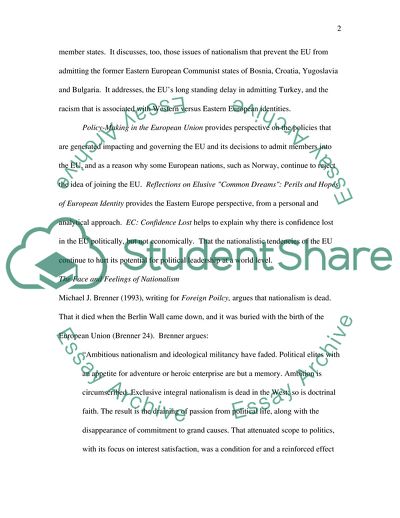Cite this document
(Nationalist Feelings in the EU Countries Essay Example | Topics and Well Written Essays - 3000 words, n.d.)
Nationalist Feelings in the EU Countries Essay Example | Topics and Well Written Essays - 3000 words. https://studentshare.org/law/1714119-does-a-rise-in-nationalist-felling-in-member-states-affect-the-functionings-of-the-eu
Nationalist Feelings in the EU Countries Essay Example | Topics and Well Written Essays - 3000 words. https://studentshare.org/law/1714119-does-a-rise-in-nationalist-felling-in-member-states-affect-the-functionings-of-the-eu
(Nationalist Feelings in the EU Countries Essay Example | Topics and Well Written Essays - 3000 Words)
Nationalist Feelings in the EU Countries Essay Example | Topics and Well Written Essays - 3000 Words. https://studentshare.org/law/1714119-does-a-rise-in-nationalist-felling-in-member-states-affect-the-functionings-of-the-eu.
Nationalist Feelings in the EU Countries Essay Example | Topics and Well Written Essays - 3000 Words. https://studentshare.org/law/1714119-does-a-rise-in-nationalist-felling-in-member-states-affect-the-functionings-of-the-eu.
“Nationalist Feelings in the EU Countries Essay Example | Topics and Well Written Essays - 3000 Words”. https://studentshare.org/law/1714119-does-a-rise-in-nationalist-felling-in-member-states-affect-the-functionings-of-the-eu.


